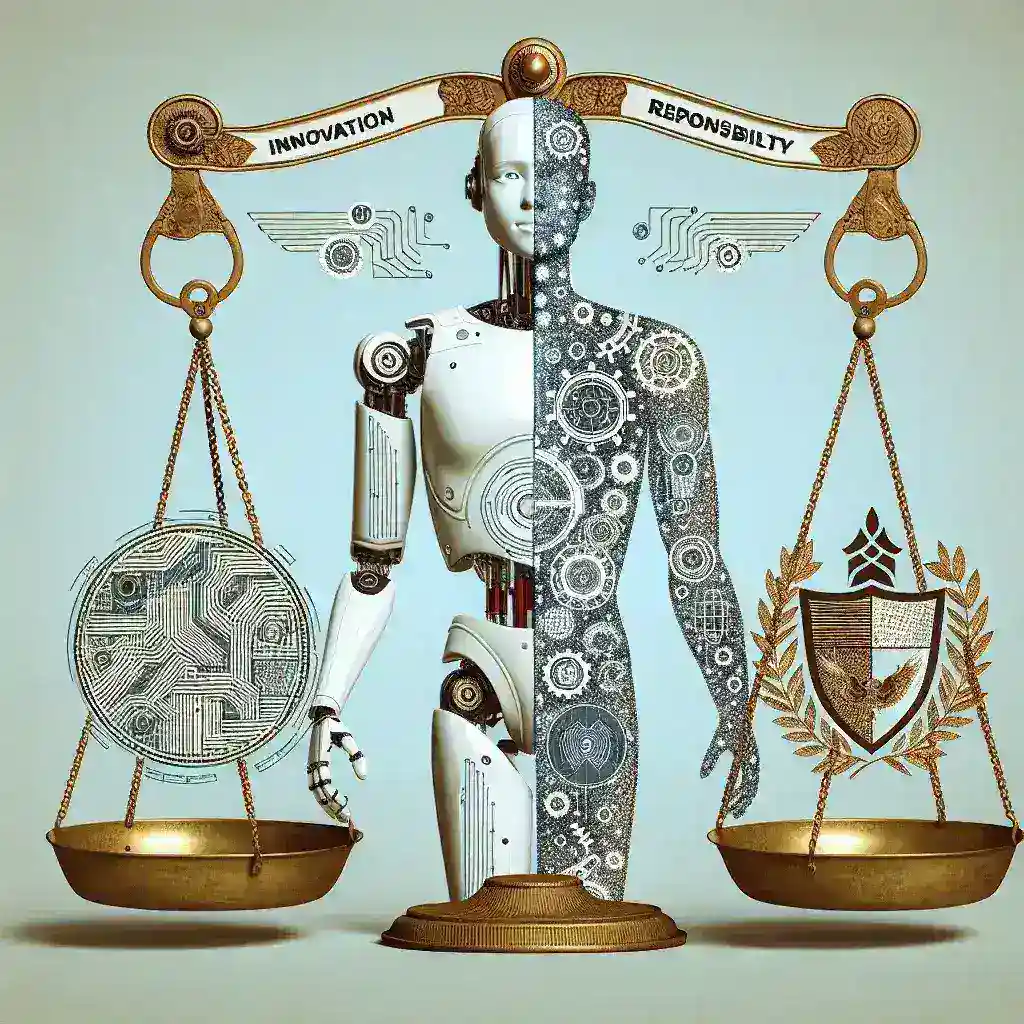Artificial Intelligence (AI) has revolutionized numerous industries, making tasks more efficient, enhancing decision-making processes, and contributing to breakthroughs in fields like healthcare, finance, and education. However, with great power comes great responsibility. The proliferation of AI technologies brings forth pressing ethical challenges that need careful consideration. This article delves into the importance of balancing innovation with responsibility to advance ethical AI.
Understanding Ethical AI
Ethical AI refers to the development and deployment of artificial intelligence systems in a manner that aligns with ethical principles and societal values. It emphasizes fairness, accountability, transparency, and the minimization of harm. Achieving ethical AI requires addressing biases, ensuring data privacy, and preventing misuse or unintended negative consequences.
The Rise of AI Ethics
As AI technologies become more integrated into our daily lives, the importance of AI ethics has surged. Several high-profile incidents have spotlighted the potential risks associated with AI, from biased algorithms affecting job hiring processes to issues of surveillance and privacy. These events underline the necessity for frameworks and guidelines to govern AI development.
Principles of Ethical AI
To ensure AI technologies are developed and used responsibly, the following principles are often highlighted:
- Fairness: AI systems should not perpetuate or amplify biases. Efforts must be made to ensure equitable treatment across diverse groups.
- Transparency: The workings of AI algorithms should be understandable and accessible. This includes clear documentation and the ability to explain decisions made by AI systems.
- Accountability: There must be clear lines of responsibility for the outcomes of AI systems. Developers and companies should be held accountable for their AI products.
- Privacy: Data privacy must be protected to prevent misuse of personal information and ensure user trust.
- Beneficence: AI systems should aim to do good, prioritizing the well-being of individuals and society.
- Non-Maleficence: AI systems should avoid causing harm and should include safeguards to mitigate potential negative impacts.
Challenges in Implementing Ethical AI
Despite the outlined principles, implementing ethical AI comes with significant challenges:
Bias in AI
Bias in AI arises from skewed training data or flawed algorithmic design, resulting in unfair treatment of certain groups. Correcting bias requires diversifying datasets and employing bias detection tools throughout the development process.
Data Privacy Concerns
AI systems heavily rely on data, often including sensitive information. Balancing data utility and privacy is complex, necessitating robust encryption, anonymization techniques, and strict data governance policies.
Lack of Transparency
The “black-box” nature of many AI models makes it difficult to understand how decisions are made. Enhancing transparency involves creating more interpretable models and fostering a culture of openness in AI research and development.
Legal and Regulatory Issues
The legal landscape for AI is still evolving. Formulating comprehensive regulations that keep pace with AI advancements while avoiding stifling innovation is a delicate balancing act that requires international cooperation.
Promoting Ethical AI Development
Encouraging ethical AI involves collective effort across multiple stakeholders:
Government and Policy Makers
Governments should spearhead the creation of regulatory frameworks that promote ethical AI. This can include guidelines, standards, and laws that mandate ethical practices in AI development.
Corporates and Developers
Companies and developers must prioritize ethical considerations in their AI projects. Developing internal ethics committees, conducting regular audits, and fostering a culture of responsibility are crucial steps.
Academia and Research Institutions
Academic institutions play a vital role in advancing ethical AI by conducting research on ethical implications and developing tools and methodologies to address ethical concerns. Collaboration between academia and industry can further bridge the gap between theoretical principles and practical applications.
Case Studies Highlighting Ethical AI
Several organizations and initiatives are leading the way in ethical AI:
Google’s AI Principles
Google has established a comprehensive set of AI principles that stress responsible AI development, including commitments to avoid creating bias and prioritize privacy.
Partnership on AI
The Partnership on AI is a collaborative effort involving tech companies, NGOs, and academia aimed at establishing best practices and conducting research on AI ethics.
IBM’s Trustworthy AI
IBM has launched initiatives focused on creating trustworthy AI systems, emphasizing fairness, robustness, and accountability.
The Future of Ethical AI
As AI continues to evolve, so too will the frameworks and principles that guide its ethical development. Innovations in explainable AI, improved bias detection algorithms, and more comprehensive privacy protocols will pave the way for a more ethically sound AI landscape.
The journey towards ethical AI is ongoing and requires the collaborative efforts of all stakeholders involved. By balancing innovation with responsibility, we can harness the transformative potential of AI while safeguarding ethical standards and societal well-being.

